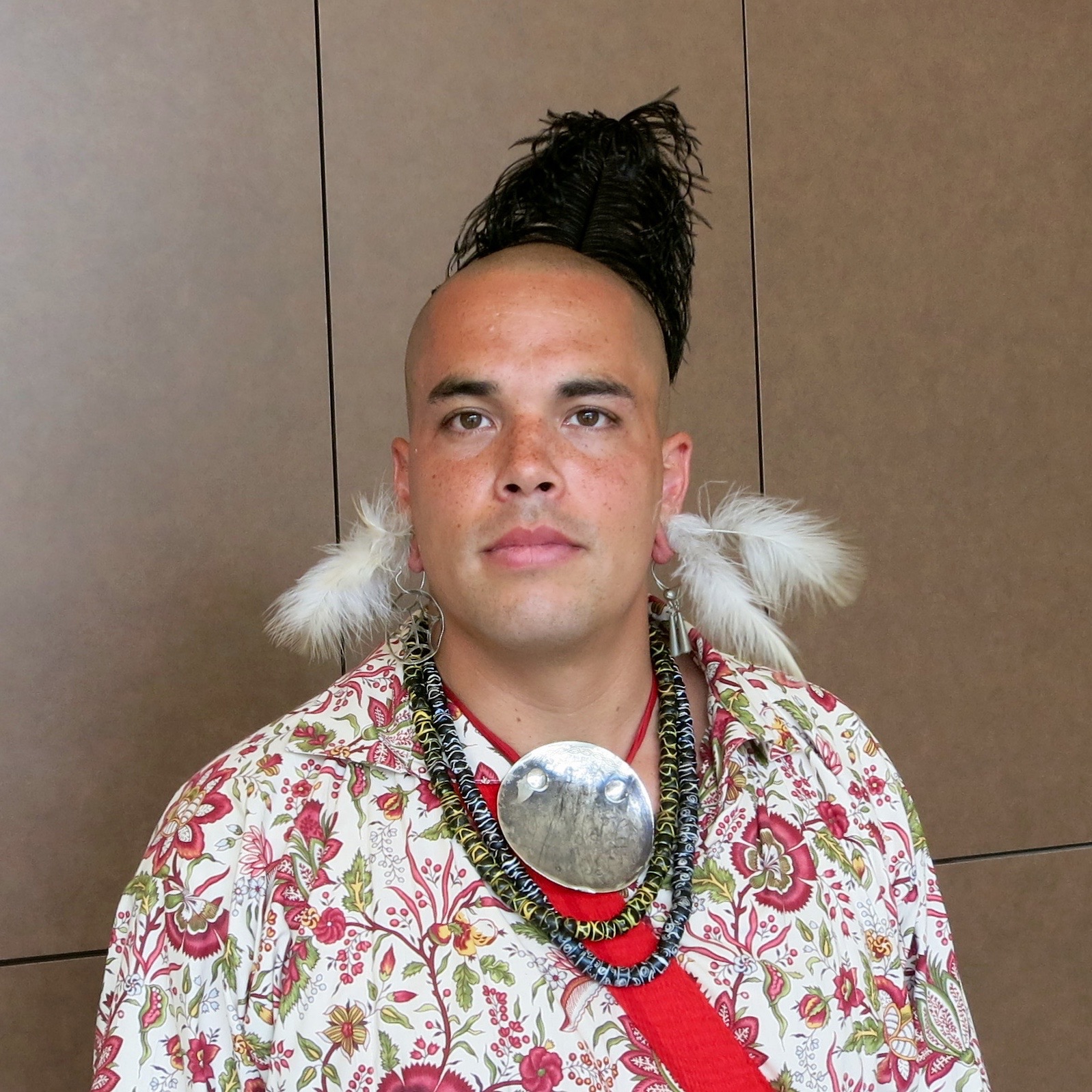
Person of the Week
Mike Crowe
First Person Interpreter of Cherokee Culture, Ball Player, Traditional Dancer, Actor, Manager of the Cherokee Friends Program
I am a Cherokee man. I am a First Person Interpreter of Cherokee Culture, Ball Player, Traditional Dancer, Actor, Manager of the Cherokee Friends Program. I think culture is a powerful thing in and of itself and it can be a tool to help people.
1. What led you to the mission of being a First Person Interpreter of Cherokee Culture, Ball Player, Traditional Dancer, Actor, Manager of the Cherokee Friends Program?
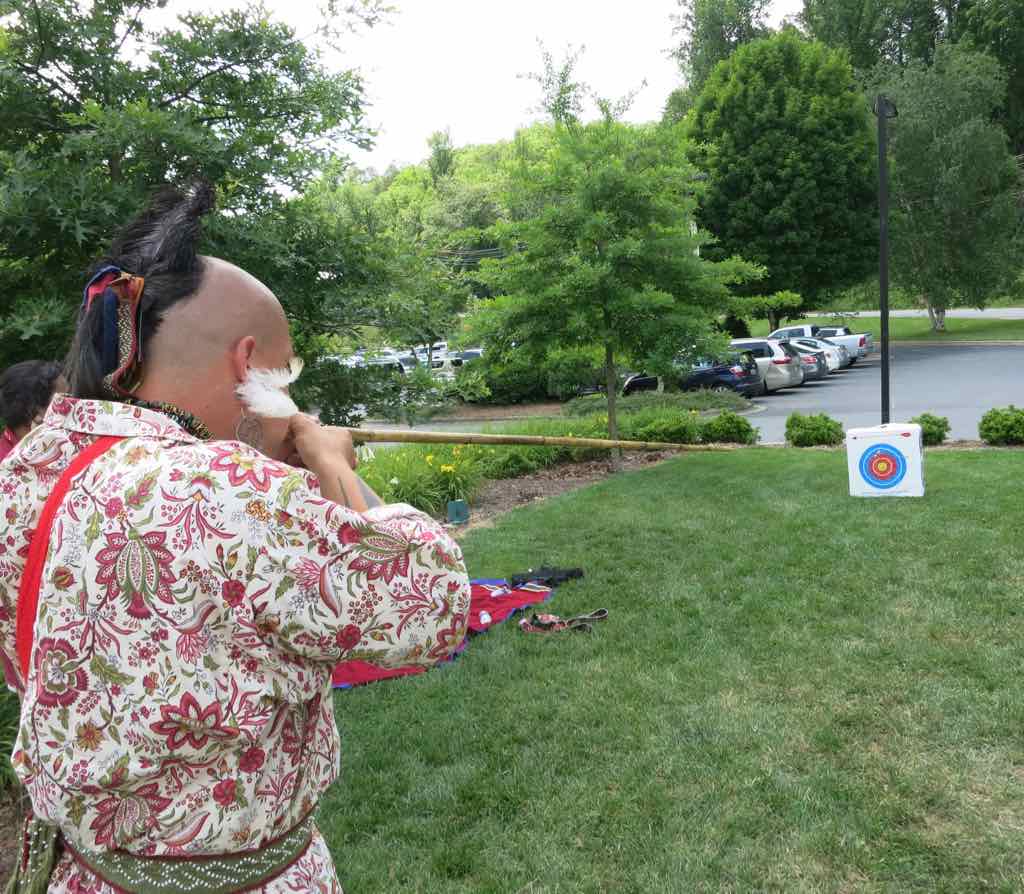 I started working at the Cherokee Indian Village where I learned a great many things. I learned basketry, beadwork, pottery, woodcarving, flint knapping, canoe making and the Cherokee ball game, anetso. I learned what it means to be Cherokee. I am also an actor. I’ve been involved with Unto These Hills since 2006. I’ve also been involved in the Colonial Williamsburg Foundation American Indian Initiative.
I started working at the Cherokee Indian Village where I learned a great many things. I learned basketry, beadwork, pottery, woodcarving, flint knapping, canoe making and the Cherokee ball game, anetso. I learned what it means to be Cherokee. I am also an actor. I’ve been involved with Unto These Hills since 2006. I’ve also been involved in the Colonial Williamsburg Foundation American Indian Initiative.
(Note: Unto These Hills is one of the nation’s foremost outdoor dramas of the Cherokee story. Mike Crowe has been a key actor in this performance. 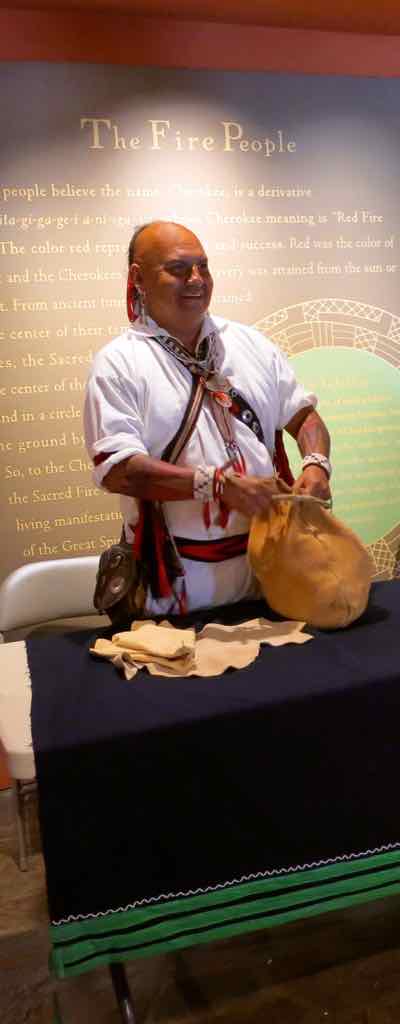 Click here to learn more about Unto These Hills and the nonprofit organization that supports the drama –the Cherokee Historical Association whose mission is to preserve the history and culture of the Cherokee people through such events as the Oconaluftee Indian Village and Unto These Hills.)
Click here to learn more about Unto These Hills and the nonprofit organization that supports the drama –the Cherokee Historical Association whose mission is to preserve the history and culture of the Cherokee people through such events as the Oconaluftee Indian Village and Unto These Hills.)
I observed my father and many others like him. My father was a painter and a wood carver. I tried to follow in his footsteps. He was very involved in the tradition and the dancing. I observed my uncle, Richard Geet Crowe doing what the warrior group is doing now. I think I was destined to do this and I feel very fulfilled in my life right now because of the things that I am doing and the opportunities that I have been afforded because of what I am doing.
Sonny Ledford also helped. I learned a great deal from him. Some people are very guarded with their information because of the remnants of the boarding school history of the Cherokee people. I never heard my father speak my language. I knew he knew it because my grandmother was fluent. Mr. Ledford has helped me.
2. What does this mission mean to you?
It means everything. 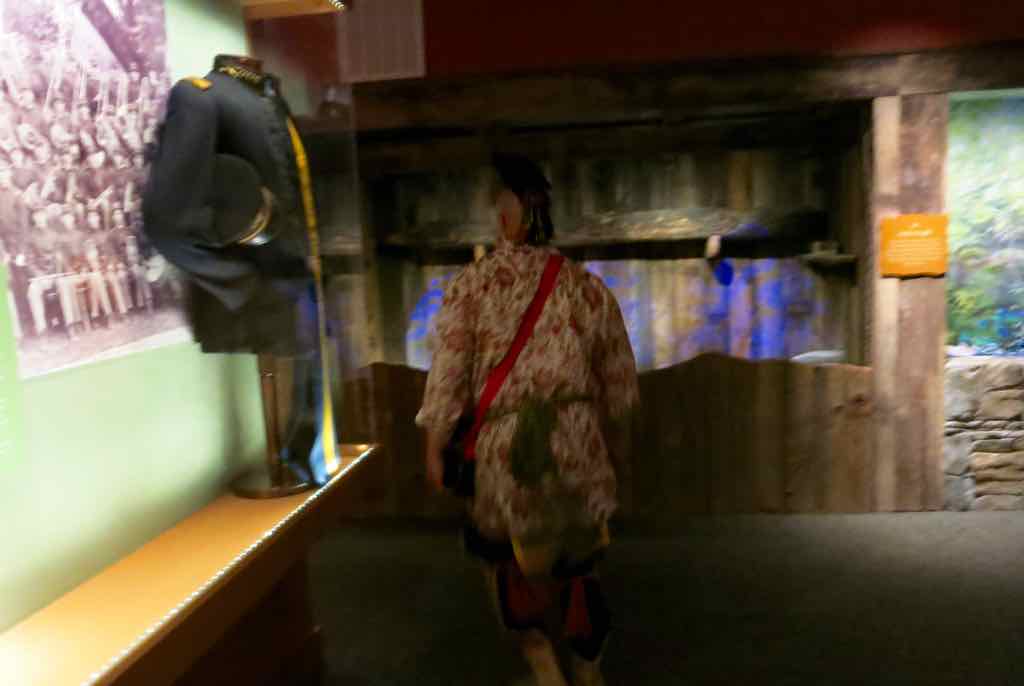 I’m very humbled by that. I try to make whatever contributions I can towards preserving our culture, out history and our language. I’ve got a long way to go. I’m still working on myself in those aspects. If we ever stop learning, if we ever feel we know it all, then I don’t think we are worthy of these things.
I’m very humbled by that. I try to make whatever contributions I can towards preserving our culture, out history and our language. I’ve got a long way to go. I’m still working on myself in those aspects. If we ever stop learning, if we ever feel we know it all, then I don’t think we are worthy of these things.
3. What was your best day being a First Person Interpreter of Cherokee Culture?
A good day is if I can spark curiosity in one of our own younger people or in someone who is not from here and not familiar with our culture but has a curiosity or appreciation for it.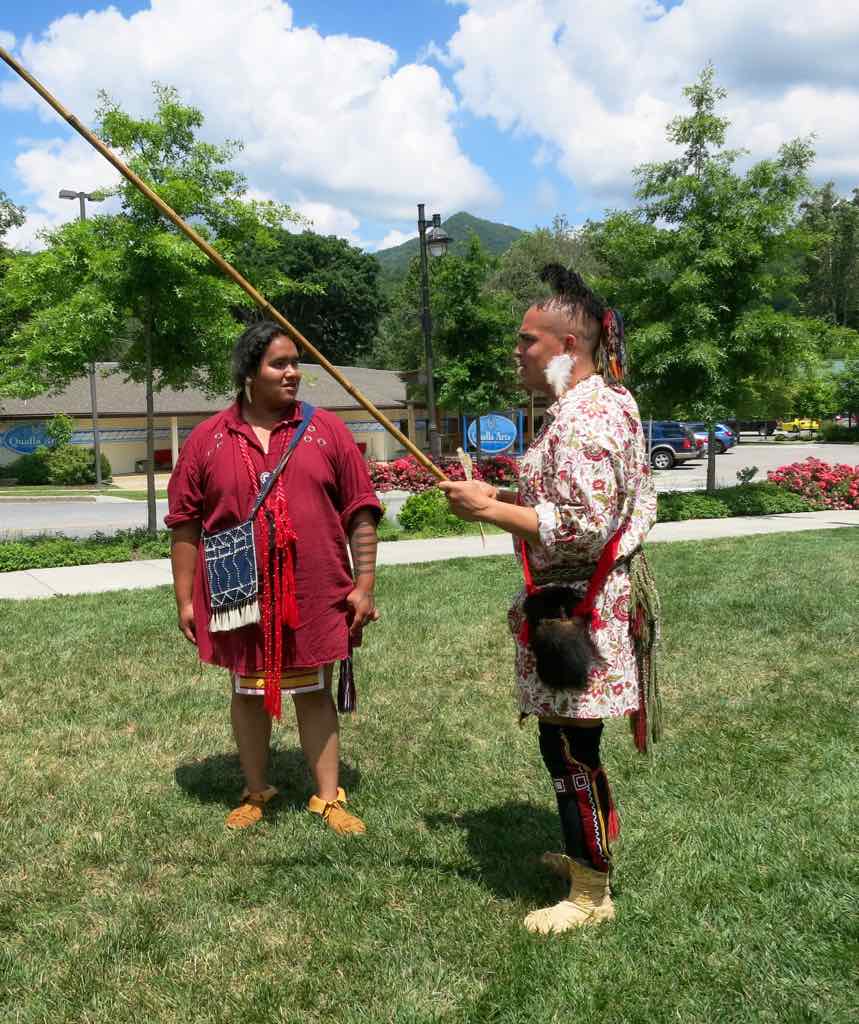 If I can help them better understand why Cherokees are the way they are or different aspects about our culture and it is a true connection — that is a good day. I can’t actually put it into words. That interaction is what it is all about.
If I can help them better understand why Cherokees are the way they are or different aspects about our culture and it is a true connection — that is a good day. I can’t actually put it into words. That interaction is what it is all about.
There are some days that I become discouraged for a variety of different reasons. I’ll go to the Meet and Greet after the show at Unto These Hills and that’s all I need for a reminder right there. When I see that these people, the patrons, are taking away something that I am directly involved in and they are truly effected – this is a good day.
4. What was your worst day being a First Person Interpreter of Cherokee Culture?
I would like to say that there are no bad days. 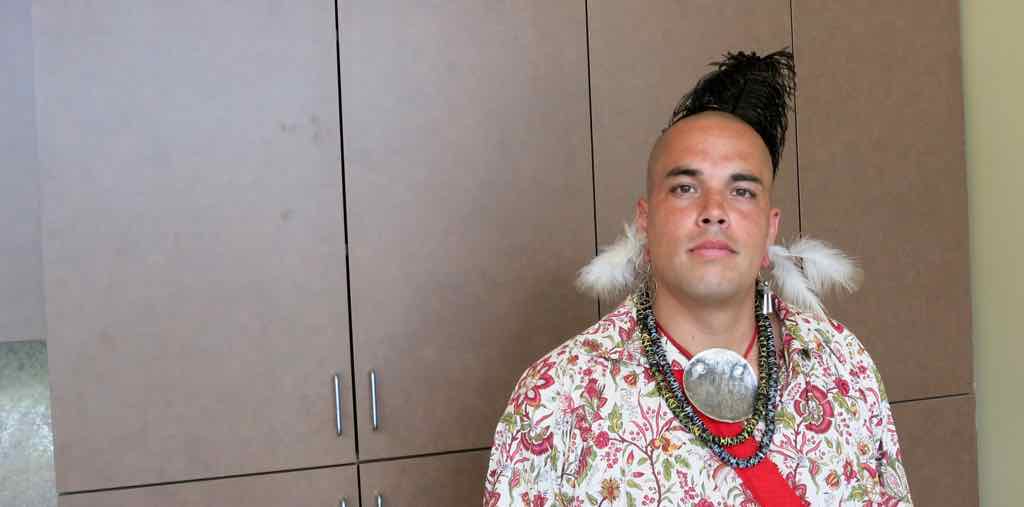 Every day is a good day but there are bad points throughout the day. It’s usually from specific interactions where it can be infuriating that people try to dispel everything that you tell them. They contradict for a variety of reasons. Some don’t appreciate who we are and what we are doing. That would be one type of having a bad moment.
Every day is a good day but there are bad points throughout the day. It’s usually from specific interactions where it can be infuriating that people try to dispel everything that you tell them. They contradict for a variety of reasons. Some don’t appreciate who we are and what we are doing. That would be one type of having a bad moment.
5. How did you survive your worst day?
There are different things that I do. I don’t think it is any clear-cut answer.
I go and work on my art sometimes. 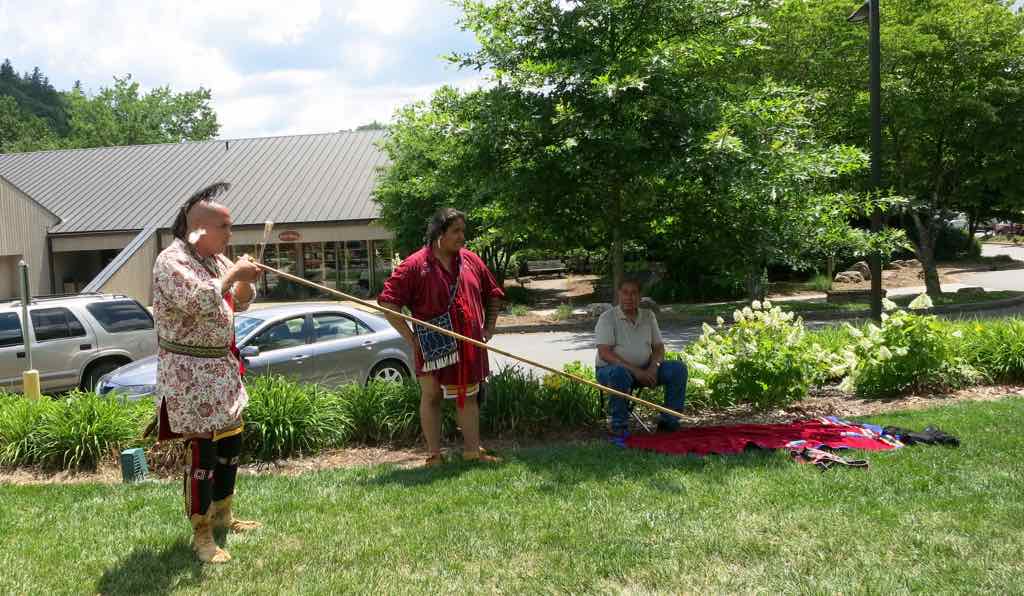 I dance our traditional dance. I can’t even describe the feeling when I take part as a singer in our traditional music. I’m involved with the preshow for the Until To The Hills. The preshow is with the children that are in the production. They are involved and sing in our language. They dance our traditional animal dances. That does a lot for me.
I dance our traditional dance. I can’t even describe the feeling when I take part as a singer in our traditional music. I’m involved with the preshow for the Until To The Hills. The preshow is with the children that are in the production. They are involved and sing in our language. They dance our traditional animal dances. That does a lot for me.
I have a wonderful family – my wife and my daughters. They are a network of support during those times and let me unload on them. They help me through and give me words of encouragement.
6. What advice do you have for someone who would like to follow in your footsteps?
I would present them with the same things and opportunities as best I could that were presented to me. 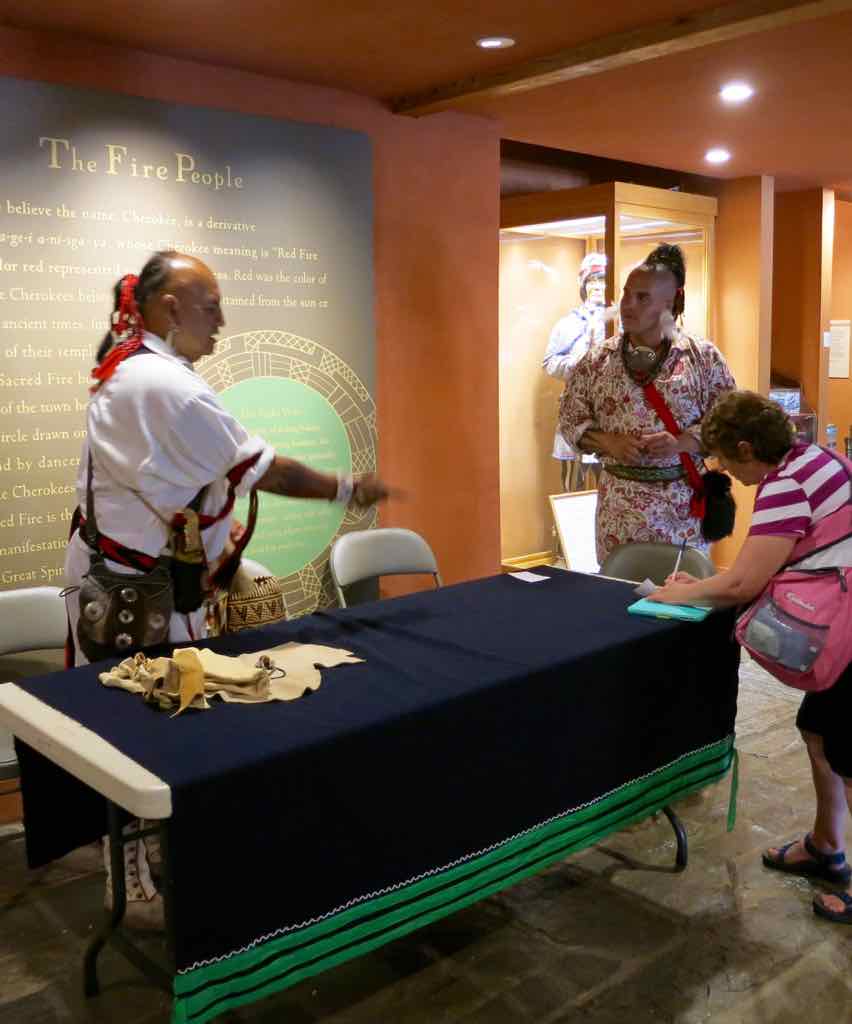 I think culture is a powerful thing in and of itself and it can be a tool to help people. I’ve noticed a number of people say that the way Cherokees lived and still do today, can be empowering.
I think culture is a powerful thing in and of itself and it can be a tool to help people. I’ve noticed a number of people say that the way Cherokees lived and still do today, can be empowering.
There was a person who tried to kill herself and was involved with substance abuse. I don’t want to say the culture saved her life, but it definitely helped her. She was at her breaking point and things were not looking good for her, but the culture helped her. I don’t know what it was specifically. But that is the Cherokee way – to carry on.
- « Previous person: Lisa Wisz
- » Next person: Jerry Wolfe